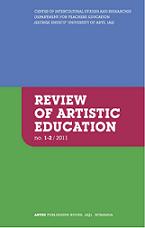PEDAGOGICAL PRINCIPLES OF ITALIAN INSTRUMENTAL DIDACTICS
PEDAGOGICAL PRINCIPLES OF ITALIAN INSTRUMENTAL DIDACTICS
Author(s): Alessandra PadulaSubject(s): Education
Published by: Editura ARTES
Keywords: music schools; musical instrument; cultural heritage; musical-didactic activities.
Summary/Abstract: Learning to play a musical instruments has relevant “strictly disciplinary” goals, as fluency, strength and independence of the fingers, correct phrasing, stylistically appropriate execution of ornaments, etc. However, pupils who play a musical instrument can also reach or optimize fundamental perceptive, cognitive, and motor capabilities. They can enhance their ability to join other pupils, raising self-esteem and self-control, and developing a sense of belonging. They can train memory, develop creativity, and enhance their own expressive and organizational capabilities. Moreover, in playing a musical instrument they can get key competences for lifelong learning, and get possession of a fundamental part of Europe’s rich cultural heritage.The paper outlines the courses offered by Italian public schools in the instrumental field, and cites the works of many Italian composers included in the syllabi of music schools and Conservatories. The pedagogical principles on which these pieces are based are related to the thought of some important pedagogues and psychologists, such as Pestalozzi, Montessori and Gardner.
Journal: Review of Artistic Education
- Issue Year: 2012
- Issue No: 03+04
- Page Range: 30-39
- Page Count: 10
- Language: English
- Content File-PDF

